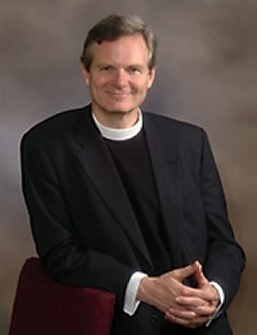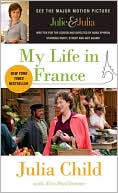The Very Reverend Samuel T. Lloyd III gave a special inspirational presentation last Sunday morning in the Sunday Forums series before the Advent service about how Christmas has enormous potential to change our lives. My greatly simplified notes cannot do justice to this eminent gifted preacher’s power of persuasion and gifted eloquence. It can be seen in its splendid entirety here at
Washington’s National Cathedral site at nationalcathedral.org.
Dean Lloyd talked about Christmas from the perspective of
commerce, history, theology, politics. The final, most important aspect he explains is "Christmas Now," our own celebrations, as we each experience a holiday that has the power to sustain us all through the year.
 photo: Episcopal ChurchThe Very Rev. Samuel T. Lloyd III
photo: Episcopal ChurchThe Very Rev. Samuel T. Lloyd III
The first aspect of Christmas, the commercial side, has cultural pieces that add to the richness and is a recent dimension. Dean Lloyd said that the American Christmas took off in New York in the early part of the 1900s. Christmas celebration shopping began after the Macy’s Thanksgiving day parade in the 1920s in an even bigger way.
The historical dimension of Christmas is part of the conviction that makes us Christians. For Jesus was born in Bethleham, 4-6 A.D. He lived, grew and died near there. Powerful stories tell us about the birth. And while details of His birth are elusive, they are mentioned in Matthew and Luke. History suggests that God became flesh at one point.
The theological aspect of Christmas has to do with Mary giving birth to her Creator. The main idea is that in this life and moment, something significant took place for all time; that God took on flesh among us.
The political aspect was the threat to Herod who wanted to destroy a new king who posed a threat to his empire and all they believed. This counter King Jesus being born would change the world forever, and be a King of peace, compassion, love, justice and healing.
"Christmas Now" is what Christmas means now to our souls and spirit. What happened then happens now. Dean Lloyd refers to Hymn 79, "O Little Town of Bethlehem": Christ is born of Mary. "Christmas is a phenomenon that is happening now." Christmastime is when our soul is able to receive Christ in. It can happen, will happen and can have a huge impact. Dean Lloyd says that it is tragic if we ignore our spiritual beings.
He referred to
Theological Germanica, a text from 1350, has a description of the idea that we live our lives with two eyes. We tend to live engaged in the mundane present with one eye. The other eye is meant to see eternal beauty, depth and the connectedness of all things. Spiritual life is about keeping both eyes open.

Dean Lloyd referred to
Beatrice Bruteau who says that “seeing the fullness of a person is like seeing a rose.” We inhabit the tips of the rose, while it is the center that holds us and all the universe together. We want to maintain the vision of the rose. Dean Lloyd says that when we focus on the mundane, we lose our way and forget what’s important. We need to maintain our sense of connectedness.
Dean Lloyd says that the rich power of the Christmas story is to deepen our life now. Christ is continually being born and being in our lives and is part of the enormous possibility of what’s happening now. The angelic visitations in the Christmas story are about how we live in a world where there are divine messengers all the time. God is getting through to us in our daily lives if we pay attention to the messengers. God is speaking to us through them, he says.
The historicity of the virginity of Mary makes the point is that Mary was ready, willing and open. She was willing to make room for this gift to come. It is thought that she was not promised for marriage to explain the idea of her virginity. The challenge is for us to be more open, to create a space where God can come in, in a surprising way.
ChristmaSpirit.com
The urgent message of Christmas, says Dean Lloyd, is that someone is willing to receive a message, a message that entails waiting. The messenger and messages come when we are ready and open to receive. That waiting, openness and availability are important aspects of the Christmas story as it relates to us personally.
We should rejoice that God has found us, says Dean Lloyd, for the great mystery behind love will come. It makes us “re-scramble our paradigms.” We tend to spend a lot of time making sure our inner psychic structure doesn’t get threatened. That self-discipline is good, but we need to let in God’s angels, so God can say something fresh through His messengers.
To allow ourselves to be open requires us to trust there is a Grace who will go with us and not desert us. The Angel says “do not be afraid” and Mary says, “yes... how can this be?” that something has "come to claim me?" Mary says yes to living with both eyes open, that she won't go alone. Christmas says we are made for union with God and with each other. We are meant to pay attention to the story. We’re intended to have silent nights all of our lives. Christmas is about a new King who seems part of making a different kind of world.
In the open question period, Dean Lloyd was asked by the audience:
1) How should we think about Easter?
Dean Lloyd says that it’s a secret that Christmas and Easter are telling the same story. It’s one story, and two different places in the same story. It’s a story about calling us into the life we were made for. It changes the way we feel about our lives. The story has a “surplus of meaning.” It’s like a story of standing next to a waterfall and the best we can do is hold a tin cup to catch a little water and pass it along.
Niagara Falls. Photo: E. Seymour
2) How can Christianity be reconciled with major world religions and Christmas expressed in an ecumenical stage so that the story becomes a universal message?
Dean Lloyd says that all religions share the vision of God who has been everywhere. Christians believe that Christ is the defining insight of who God is, in the body of Jesus of Nazareth. We follow Him and He teaches us to respect and love and honor other traditions.
3) How can we overcome the sometimes overwhelming cultural aspects of our Christmas?
We need to learn to nurture and cultivate the Christmas message of hope, Dean Lloyd answers, the ways of staying loving, hopeful, alive, generous and connected rather than frightened, anxious, closed down and pulled into ourselves. We need to listen and create the space for God in our daily lives. We need to listen, create space for God and trust that life will enter in, and it is a thing of grace. We can contribute to the Christmas story by being people of hope.
Dean Lloyd observes that the Christmas story has the rich power to deepen our lives now. Christ is continually being born and being in our lives, giving us work to do and is part of the enormous possibility of what’s happening now.
author’s note: If he hasn’t already, Dean Lloyd could make wonderful books of official collections and recollections of his presentations and sermons and conversations. They’d greatly benefit many lay and pastoral readers.
This effort has not been requested or acknowledged by the National Cathedral. Any mistakes and inaccuracies are wholly my own. The presentation is available online in its entirety and should be checked to verify.

























